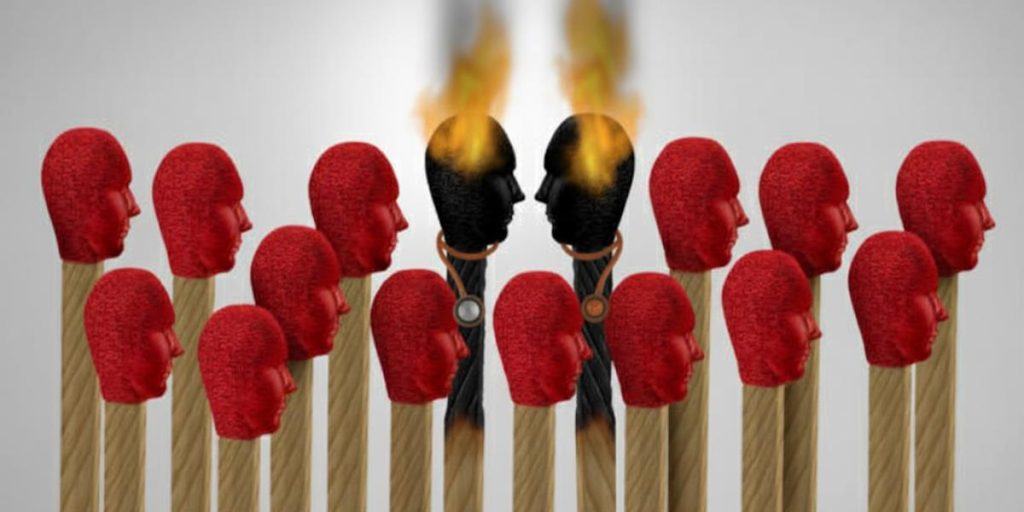
Healthcare consolidation by private equity firms promises efficiency but often leaves doctors with more admin, less autonomy, and higher burnout. And patient care deteriorates as shareholder value increases. The problem isn’t just bigger systems—it’s how change is managed without listening to frontline clinicians. Physicians can protect boundaries, seek support, and push for a seat at the table. Leaders must measure success by more than cost savings—they need to keep their people whole. Bigger isn’t better if it burns everyone out and leads to worse patient care.
I still remember the day my small, scrappy community hospital got bought out by a giant health system. One day we were doing patient care with a mix of duct tape, caffeine, good will, and post-it notes. The next day there were emails from new executives we’d never met, a mandatory webinar on “harmonizing workflows,” and suddenly I had three extra passwords to remember before I could order paracetamol.
We were promised “efficiencies” and “alignment.” What we got was an extra layer of management, a new EMR that hated us, and a creeping sense that we’d gone from being doctors to being widgets. And if I’m honest, that’s the moment I started to feel my soul quietly slip out the back door.
And let’s be blunt — when private equity swoops in, it usually isn’t because they love patient care. It’s because they see an opportunity to squeeze margins. Spoiler: that rarely ends well for patients or the clinicians taking care of them.
Welcome to private equity consolidation burnout.
For those lucky enough not to have been swept up in this wave, “consolidation” is a fancy word for when hospitals, clinics, or practices merge or get bought by a bigger system. In theory, it’s supposed to save money, share resources, and make care more coordinated.
Sounds good on paper, right?
But here’s what it looks like from the inside: longer call schedules, new reporting structures, more forms, and a subtle but persistent feeling that you’re just a line item on someone’s spreadsheet. And the promised “efficiencies”? Usually code for “you’ll be doing more with less.”
Burnout isn’t just about working too hard. It’s about losing your sense of autonomy, meaning, and connection. And consolidation can crank up all three levers at once.
· Loss of autonomy: Suddenly, decisions you used to make on the fly now require committee approval. Want to change your clinic schedule to fit patient needs? Sorry, corporate says no.
· Administrative overload: New EMR, new workflows, new policies. Just when you’ve memorized the old way, it’s ripped out from under you.
· Erosion of identity: Your small, collegial hospital where everyone knew each other’s kids is now just “Region 4 Facility C.” You’re employee #24713. Congratulations.
· Moral distress: When consolidation means cutting services, closing departments, or prioritizing revenue over patient care, it grinds against why you went into medicine in the first place.
If burnout is the fire, consolidation is often the accelerant.
And let’s not pretend patients don’t feel this too. In fact, they often get hit first.
In the wake of the Steward Health Care crisis, corporate and private equity ownership of healthcare has come under new scrutiny — and for good reason. Patients were suddenly left wondering whether their local hospital would shut down, whether their doctor would still be there next month, whether their care would get more expensive.
Tragically, in the Steward case,
When systems consolidate, we see:
· Longer wait times as staff get stretched thinner.
· Reduced local services when “streamlining” means shutting down labor and delivery, oncology, or mental health programs.
· Higher costs when monopolies can charge more with fewer competitors around.
· Loss of continuity: Patients who had a personal relationship with their care team may now be seen by strangers rotating through a bigger system.
Patients don’t just lose convenience — they lose trust. And when they start to distrust the system, they delay care, they avoid appointments, and their health outcomes tank.
So yes, consolidation burnout is a physician problem — but it’s also a patient-safety issue. Burned-out doctors, closed clinics, and stressed staff are a recipe for mistakes. The stakes aren’t just our sanity. They’re measured in lives.
I was talking to a colleague recently—we’ll call her Dr. X—who’s been through three consolidations in the last decade. She said, “I don’t even bother learning the new administrators’ names anymore. They’ll be gone in 18 months.”
She’s not bitter. Just… numb. And that’s the part no one writes in the annual report. The human toll of endless change, with no space to process it. The quiet quitting that happens not because people are lazy but because they can’t keep caring at 110% while the ground keeps shifting beneath them.
Consolidation isn’t automatically evil. When it’s done well, it can bring more resources, better care coordination, and access to specialists. But it has to be done with clinicians, not to them.
Leaders need to:
· Involve physicians and staff early, not after the ink is dry.
· Offer transition support — training, time, mental health resources.
· Preserve what’s special about local culture instead of flattening it all into corporate beige.
· Measure success by physician retention, patient outcomes, and satisfaction — not just EBITDA.
As for us on the ground? We protect what we can. We support each other. We say no when the system asks for more than we can safely give. And we remember that even if the corporation doesn’t see us, our patients still do — and that’s who we ultimately serve.
PE consolidation burnout is real, but it doesn’t have to break us. It just might force us to get very clear about what we will and won’t tolerate, and maybe, just maybe, help us build something better from the ashes.
Physicians Anonymous offers several services for physicians in distress, burnout, mental illness and addiction. All medical students and physicians are welcome.
· FREE anonymous physician-only peer-support groups here.
· Change your life with one of our Physicians Anonymous-approved Coaches here.
· Prevention is better than cure! Find out about our Burnout Vaccine(TM) which teaches you the skills the med school/residency don’t have time for, to move from surviving to thriving in medicine.

A recovering physician who left medicine after burning out and more. Overachiever. Impostor syndrome. Addict. Had never heard of Corrigan's Secret Door* until it was too late. Co-founded Physicians Anonymous with intention to solve physician burnout, mental illness, and addiction. Hopes to prevent future medical career disasters through peer support, advocacy, policy change, and innovation. * https://physiciansanonymous.org/corrigans-secret-door-and-other-stories/